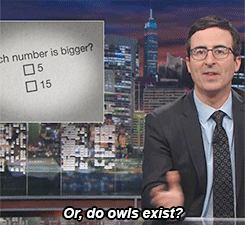Judges: Who Can Sue Trump? How About Nobody? Does Nobody Work For You?
If the Constitution falls and no one is there to hear it, does it make a noise?
The Trump kleptocracy is alive and well and no one can stop it! Despite constitutional prohibitions on federal officials profiting financially from their positions, so far no one has been able to successfully sue Trump to stop him from doing that.
Trump doesn't just still own his businesses; he regularly uses his position to promote them. Since taking office, he has referred to Mar-a-Lago in Palm Beach -- where you too can gift the president hundreds of thousands of dollars -- as "the winter White House," and spent millions of taxpayer dollars to travel to Florida, all the while encouraging politicians, lobbyists, and people seeking influence to join him. Not to mention that small hotel in our nation's capital where every foreign despot seems to have rented the ballroom or a whole floor to pay tribute to the businessman in chief.
This is exactly the type of thing the emoluments clauses of the Constitution are meant to stop. But if no one has standing to enforce the Constitution, does it even really exist?

What happened this time?
On Wednesday, a conservative three-judge panel of the Fourth Circuit dismissed a lawsuit brought by Maryland and Washington DC that challenged Trump's continued ownership and active promotion of his businesses as unconstitutional. The court didn't rule on whether Trump is violating the emoluments clauses of the Constitution with his kleptocracy (he is); rather, it decided that Maryland and DC can't sue over it.
Although the Fourth Circuit became increasingly liberal after several Obama appointments, the three-judge panel hearing this case was decidedly conservative. The opinion was written by Judge Paul Niemeyer, a Reagan appointee otherwise known for his gross dissent in the Fourth Circuit's marriage equality case. Also hearing the case were Judge Dennis Shedd, a baby Bush appointee who was in favor of the Muslim Ban, and Judge Marvin Quattlebaum, a Trump appointee. (Nothing prohibits federal judges from hearing cases related to the Presidents who appointed them.)
What's an emolument?
There are two different parts of the Constitution that address emoluments -- the foreign emoluments clause and the domestic emoluments clause. The US Constitution prohibits federal government officials from receiving gifts, emoluments, offices, or titles from foreign governments. It also prohibits the President from receiving any emoluments from federal or state governments, other than his or her salary. But that still leave the question of what an emolument actually is.
Basically, emoluments are money. These clauses were added to the Constitution because people were worried that officials of the brand new US government could be bought with gifts from European countries. The King of France had once given Benjamin Franklin a snuffbox festooned with 408 diamonds, which sounds pretty snazzy. And John Jay apparently got a horse from the King of Spain. (Even if it was a really nice horse, I think Ben Franklin won that round. Sorry, John.)
The emoluments clauses were fairly obscure and unknown until Trump took office. Every other president in modern history has taken care to divest of his personal business holdings before taking office. Jimmy Carter even put his family peanut farm in a blind trust before he took office. But Trump has continued to run his global hotel and business empire during his term, because nothing matters anymore.

As always, Trump and his lawyers reacted to the court's decision with grace and humility. Jay Sekulow, one of Trump's lawyers, was similarly tempered in his response, referring to these lawsuits that seek to enforce the Constitution as "presidential harassment" and celebrating Trump's "complete victory."
Trump was similarly tempered in his response, invoking the "Deep State" and once again showing that he doesn't know what a witch hunt is.
....serving and doing a great job as your President (including accepting Zero salary!).
— Donald J. Trump (@Donald J. Trump) 1562771219.0
The Maryland and DC Attorneys General expressed their disappointment with the decision and vowed to keep fighting, saying the court "failed to acknowledge the most extraordinary circumstance of all: President Trump is brazenly profiting from the Office of the President in ways that no other President in history ever imagined and that the founders expressly sought — in the Constitution — to prohibit[.]"
What happened in this case?
The court did NOT rule that Trump isn't violating the emoluments clause -- it ruled that Maryland and Washington DC don't have standing to sue over it. Standing is a legal hurdle that anyone suing in federal court has to be able to clear. The Constitution says that federal courts can only hear actual cases or controversies. In practice, this means that any plaintiff in federal court has to be able to show that they are personally being harmed by the action they seek to stop or prevent, also called "injury in fact."
The Fourth Circuit found that Maryland and DC don't have standing to sue over Trump's emoluments violations. According to the court:
The District and Maryland's interest in enforcing the emoluments clauses is so attenuated and abstract that their prosecution of this case readily provokes the question of whether this action against the president is an appropriate use of the courts, which were created to resolve real cases and controversies between the parties.
This isn't the first time an emoluments suit against Trump has been dismissed for lack of standing. In 2017, a judge in the Southern District of New York dismissed an emoluments suit filed by ethics watchdogs Citizens for Responsibility & Ethics in Washington (CREW). The CREW plaintiffs had also argued that Trump's position as President gave him an unfair advantage in the hospitality industry. That case was also thrown out for lack of standing.
Case Western Reserve law professor Erik Jensen described the standing issue for NBC:
The issue was whether the district and the state could bring the suit at all. For a suit to proceed in federal court, a plaintiff must have what's referred to as "standing." In cases that challenge a government official's actions, a plaintiff must be able to allege more than a general unhappiness with the actions.
So can anyone sue over Trump's constitutional violations?
At this point, it's really not clear. An emoluments lawsuit filed by congressional Democrats is still pending in the DC Circuit. That case is broader in scope and relies on a different argument for standing. As describe by the Washington Post ,
The case extends beyond the D.C. hotel and is based on a different theory of standing. The Democratic lawmakers say the president is violating the Constitution because it gives Congress the right to approve — or withhold — consent before the president accepts payments or benefits from foreign governments.
In addition to the Fourth Circuit decision and the CREW case, a recent Supreme Court decision could also cause problems for congressional Dems. Last month, the Court ruled that the Republican-led Virginia House didn't have standing to appeal a federal court order about gerrymandering.
Even some legal experts who think Trump is violating the Constitution by maintaining ownership of his businesses believe that it will be difficult for any plaintiffs to establish their standing to sue. As noted by Professor Jensen:
The court dismissed the suit on the basis of a narrow issue — but it's a fundamental one with wide-ranging implications. In fact, the ruling suggests that clearing the initial hurdle laid out to make such a challenge will be almost impossible via litigation, and that those who see the emoluments clause as a promising course for resisting the president are wasting their time. It's a sign of the broader challenge facing those who seek to use constitutional restraints to check the executive or hold the president accountable.
It's entirely possible that no one has standing to sue over these constitutional violations, which would effectively prevent any court from hearing cases about Trump's kleptocracy in personally profiting from his office.
Courts have used the standing doctrine to bar all kinds of constitutional, civil rights, and environmental suits throughout the years. The problem isn't necessarily this one case; the current standing doctrine doctrine prevents courts from hearing any number of important cases that affect the entire country.
It's important that all parts of the Constitution be enforced, including the case or controversy requirement. But the standing doctrine's rejection of the idea that states and their citizens are harmed by blatant flouting of the Constitution has resulted in certain constitutional provisions being effectively meaningless in practice.
What happens now?
Like many legal issues, the [frustrating] answer is "it depends." As with other noted Trump disputes like the 2020 Census and Muslim Ban, this is likely to end up in front of the Supreme Court before all is said and done. But with the current Court, it's unlikely that any of the suits that are currently pending will be successful.
Some legal experts, like Professor Jensen, argue that constitutional provisions that aren't enforceable through the courts are enforceable though other means, like Congress or the ballot box. But a constitutional requirement that is enforceable only though the ballot box is not much of a requirement at all. Constitutional law is not decided through popular vote for a reason -- there are some things that are just too important to leave up to political whims.
It isn't just gross and unconstitutional that Trump is using the presidency to personally profit -- it's also fucking embarrassing, on a global scale. But I guess it's just another thing Trump and his buddy Putin have in common.

[ Fourth Circuit / NBC / WaPo ]
You know WHO ELSE is making money off the presidency? Us. Please give us some! Click below!





Straight out of a Marx Bros/Mel Brooks movie...
That’s what our MD AG contended (also DC) on behalf of other hotels, obviously to no avail.